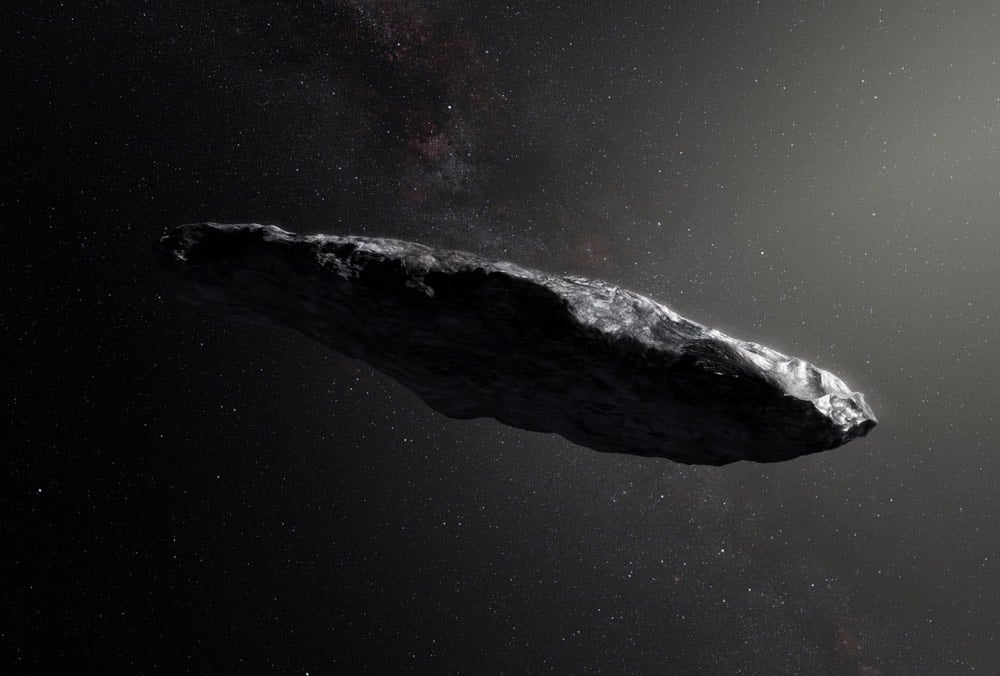The first asteroid from outside our solar system pays us a visit

Back in October, the solar system welcomed a visitor from interstellar space…the first interstellar asteroid ever detected.
Astronomers have confirmed that an object that recently passed by our planet is from outside our Solar System — the first interstellar asteroid that’s ever been observed. And it doesn’t look like any object we’ve ever seen in our cosmic neighborhood before.
Follow-up observations, detailed today in Nature, have found that the asteroid is dark and reddish, similar to the objects in the outer Solar System. It doesn’t have any gas or dust surrounding it, like comets do, and it’s stretched long and skinny, looking a bit like an oddly shaped pen. It’s thought to be about a quarter-mile long, and about 10 times longer than it is wide. That makes it unlike any asteroids seen in our Solar System, none of which are so elongated.
Here’s a video of the asteroid’s path through the solar system:
Um, folks…that looks like a rocket. How do we know this “asteroid” isn’t actually an ancient alien ship that’s become encrusted with rock over millions of years? Or an ancient weapon gone awry? We’ve all seen the first Star Trek movie, right? (I am only a little bit kidding about this.)
Update: Scientists — or at least one scientist who has a billionaire’s ear — think that’s there’s something a little odd about Oumuamua, so they’re going to check it for radio signals. Spoiler: they’re not going to find any, but wouldn’t it be fun if they did!?
Update: They listened and did not find any radio signals coming from Oumuamua.
Update: As of October 2018, here’s what we know about Oumuamua.
A few months later, another collaboration found that ‘Oumuamua wasn’t just being pulled by the sun’s gravity. Instead, it was being slightly accelerated by an unseen force, which they argued could only be attributed to comet “outgassing” acting like a thruster. With this additional information, the case appeared to be closed. “Interstellar asteroid is really a comet,” read the headline of a press release put out by the European Space Agency.





Stay Connected